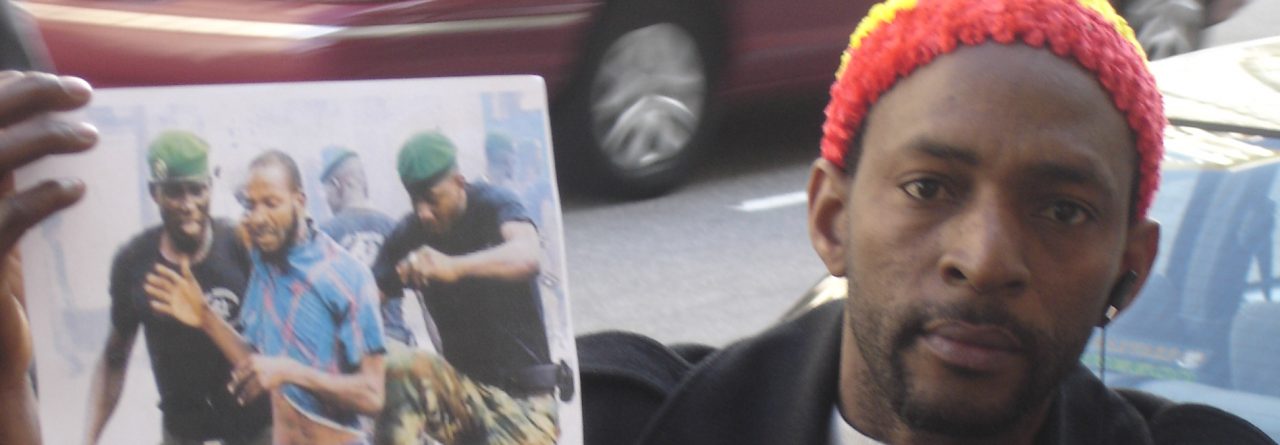Wall Street Journal
By
Scott Patterson
March 19, 2015 5:52 p.m. ET
0 COMMENTS
A long-running corruption investigation involving a mining company controlled by one of Israel’s richest men could yield up to a half-dozen indictments in the U.S., according to people familiar with the matter.
In a briefing last month, U.S. prosecutors told Guinean government officials that senior executives at BSG Resources Ltd. were among some of the people who could be indicted, according to people familiar with the meeting.
BSGR is the mining arm of Israeli billionaire Beny Steinmetz’s family-owned conglomerate. The investigation involves allegations of bribery and obstruction of justice against people connected to BSGR and a deal the company struck in 2008 to win prized mining rights in Guinea’s Simandou mountain range, one of the world’s largest deposits of iron ore.
The company was later stripped of those rights.
In an email Friday, a BSG Resources spokesman said the company would continue to press the Guinean government to “explain the lack of credible evidence used to justify the expropriation of BSGR’s mining rights.”
Advertisement
“[T]here is no evidence linking BSGR and its employees to corruption in Guinea,” the spokesman said. “Absolutely nothing has changed.”
The timing of the possible indictments is unclear, and investigators could still decide to drop the investigation. Spokesmen for the U.S. Justice Department and the Federal Bureau of Investigation declined to comment.
The February briefing followed the release from U.S. prison of a key individual in the investigation, Frédéric Cilins, in January. Mr. Cilins, a French citizen, had served two years for obstructing the federal investigation into bribery allegations related to BSGR and its mining operations in Guinea.
An attorney for Mr. Cilins, William Schwartz, declined to comment.
The U.S. investigation is one of several probes world-wide involving how the government of the West African nation awarded rights to Simandou. The entire block of iron-ore deposits was once run by Anglo-Australian miner Rio Tinto PLC, but in 2008 Guinea’s government awarded half of those rights to BSGR after the firm carried out a three-year, $165 million exploration program. Later, BSGR struck a $2.5 billion deal for Brazilian mining giant Vale SA, an iron-ore specialist, to buy a 51% stake of its Guinean assets.
Mr. Cilins had worked on behalf of BSGR in Guinea when it was pursuing mining rights there in the mid-2000s. A Guinean government report alleges that Mr. Cilins paid bribes to the wife of the now-deceased Guinean President Lansana Conté to help Mr. Steinmetz’s company win Simandou.
Mr. Cilins hasn’t been charged with bribery or other violations, and has denied the allegation.
The widow of Mr. Conté, Mamadie Touré, is cooperating with U.S. officials, a person familiar with the investigation said. An attorney representing Ms. Touré declined to comment.
In April 2013, Mr. Cilins was arrested in a federal sting operation in a Jacksonville, Fla., airport and charged with obstructing the U.S. investigation. Mr. Cilins pleaded guilty last year in a Manhattan federal court but didn’t agree to cooperate with investigators.
Since then, Guinea, now under a different regime, has stripped BSGR and Vale’s rights to Simandou after a government investigation found BSGR had engaged in corrupt activities. The probe cleared Vale of any wrongdoing. BSGR denies wrongdoing and has filed a formal arbitration request to win compensation from Guinea for stripping it of the iron-ore deposit.
Guinea’s Minister of Mines Kerfalla Yansané told The Wall Street Journal in February that the country plans to put the rights up for auction again in the next few months. However, new iron-ore projects aren’t as enticing as they once were, with the steelmaking ingredient prices hitting a six-year low.
In Switzerland, authorities in late 2013 opened a criminal probe in parallel with an investigation by officials in Guinea into whether BSGR paid bribes to secure the Simandou mining contract. In the U.K., the Serious Fraud Office is seeking information about the deal from two law firms that have acted on behalf of BSGR, including Skadden Arps Slate Meagher & Flom LLP, according to testimony by a BSGR official in a U.K. high-court proceeding. BSGR said in December that it had asked the court to review the lawfulness of the SFO’s alleged actions.
Skadden and the SFO declined to comment.
In a separate proceeding, Rio Tinto is suing BSGR, Vale and Ms. Touré, among others, in Manhattan federal court, alleging that they colluded to rob it of part of its Simandou rights.
Vale, which wrote off the $1.14 billion book value of Simandou in 2014, last Friday said it has transferred its stake to BSGR. Vale, which declined to comment, has denied any plot to rob Rio.
Mahmoud Thiam, a U.S. citizen who took over Guinea’s mining ministry soon after BSGR won the concession, said he recently handed over roughly 10,000 documents related to Simandou to the Guinean government, which is reviewing the documents for potential publication. He had delayed handing over the documents for a time because he was seeking guidance from Guinea’s government about how they handle them, Mr. Thiam said.
Write to Scott Patterson at scott.patterson@wsj.com

 The west African republic of Guinea has never before been so important to Russian mining companies – and to the even bigger internationals. So when Guinean voters go to the polls for the runoff round of their presidential election, much is at stake – and not only for our Russian champions, Oleg Deripaska and Alexei Mordashov.
The west African republic of Guinea has never before been so important to Russian mining companies – and to the even bigger internationals. So when Guinean voters go to the polls for the runoff round of their presidential election, much is at stake – and not only for our Russian champions, Oleg Deripaska and Alexei Mordashov.